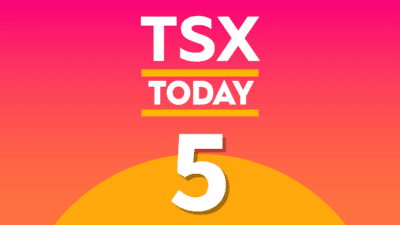Restaurant Brands International (TSX:QSR)(NYSE:QSR) has structured lucrative franchise agreements. In Canada and the United States (U.S.), the company’s Tim Hortons (TH) franchise agreements grant it the right to reacquire a restaurant under certain circumstances, and the company’s Burger King (BK) and Popeyes (PLK) franchise agreements generally provide it a right of first refusal if a franchisee proposes to sell a restaurant.
Maintaining control over the franchise agreement
Defaults, including non-payment of royalties or advertising contributions, or failure to operate in compliance with Restaurant Brands’s standards, can lead to termination of the franchise agreement. This ensures that the company maintains control over the franchise agreement.
Long-term perspective to growing sales
In the U.S. and Canada, TH franchisees operate under several types of licence agreements, with a typical term for a standard restaurant of 10 years plus renewal periods of 10 years in the aggregate for Canada and a typical term of 20 years for the United States. This ensures a long-term perspective to growing sales.
Obtaining significant liquidity
Further, TH franchisees who lease land and buildings from Restaurant Brands typically pay a royalty of 3-4.5% of weekly restaurant gross sales. Licence agreements contemplate a one-time franchise fee, which must be paid in full before the restaurant opens for business and upon the grant of an additional term. This grants significant liquidity to Restaurant Brands, which is almost a form of insurance float.
Increasing royalties adjusted for inflation
Under a separate lease or sublease, TH franchisees typically pay monthly rent based on the greater of a fixed monthly payment and contingent rental payments based on a percentage, usually 8.5% to 10.0%, of monthly gross sales or flow through monthly rent based on the terms of an underlying lease. Where the franchisee owns the premises, leases it from a third party, or enters a flow-through lease with TH, the royalty is typically increased based on inflation.
Lucrative recurring fees
The typical BK and PLK franchise agreement in the U.S. and Canada has a 20-year term and contemplates a one-time franchise fee plus an additional fee upon renewal. Subject to incentive programs, most new BK franchise restaurants in the U.S. and Canada pay a royalty on gross sales of 4.5% and most PLK restaurants in the U.S. and Canada pay a royalty on gross sales of 5%.
Technology fee on all digital sales
BK franchise agreements typically provide for a 20-year renewal term, and PLK franchise agreements typically provide for two 10-year renewal terms. In addition, PLK franchisees pay a technology fee on all digital sales through Restaurant Brands’s proprietary technology. In an effort to improve the image of BK restaurants in the U.S., Restaurant Brands offers U.S. franchisees a reduced up-front franchise fees and limited-term royalty and advertising fund rate reductions to remodel restaurants to Restaurant Brands’s modern image.
Backed by a legendary hedge fund investor
Bill Ackman, one of America’s best hedge fund managers, has invested heavily in Restaurant Brands. Lucrative recurring fees charged by the company makes it quite easy to see why Bill Ackman has invested.







